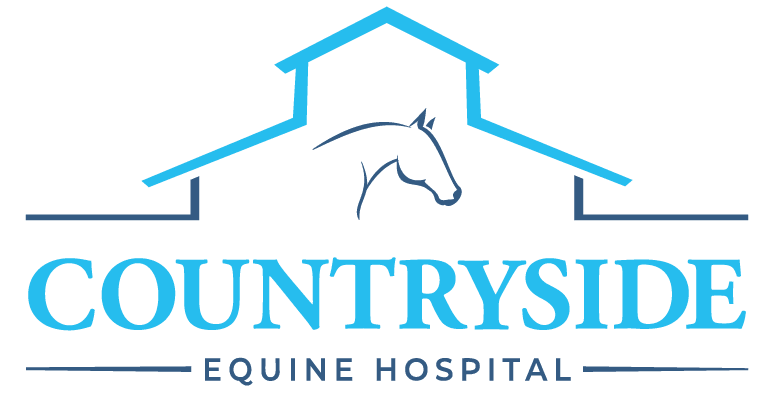The eyes are critical to the health, performance, and well-being of your horse; however, they’re incredibly delicate. Even minor eye issues can escalate quickly, making early detection and treatment critical. At Countryside Equine Hospital, we provide advanced medical and surgical solutions, along with the latest drug therapies, to address a wide range of equine eye conditions.
Due to the sensitive nature of a horse's eyes, any signs of discomfort or injury should be treated as an emergency. Prompt intervention can help prevent long-term complications and preserve your horse’s vision.
If you suspect an eye issue in your horse, contact our team immediately at (770) 787-4711 for an appointment.
Signs of Equine Eye Problems
Early recognition of eye issues can prevent long-term damage. Contact us if your horse is exhibiting any of the following symptoms:
- Redness
- Excessive tearing
- Heavy discharge
- Squinting
- Swelling around the eye
- Cloudiness or changes in the eye's appearance
- Rubbing or scratching the eye against objects
Persistent irritation or trauma caused by rubbing can escalate eye problems, so seek veterinary attention promptly if you notice your horse experiencing ocular discomfort.
Our Equine Eye Care Services
At Countryside Equine Hospital, we are equipped with the expertise and technology to diagnose and treat numerous equine eye conditions. Our services include:
Comprehensive Eye Exams
We conduct thorough ocular assessments to detect issues early and guide appropriate treatment plans.
Medical and Surgical Treatment
From medications to advanced surgical procedures, we offer a full spectrum of care to help preserve your horse’s vision and comfort.
Subpalpebral Lavage (SPL) Systems
Medicating a painful, injured eye is no easy task, so we implement specialized systems that allow for precise, consistent medication delivery directly into the eye for effective treatment.
Protective Eye Care Solutions
Protecting an injured eye while it’s healing is half the battle. We use bubble masks and other innovative solutions to prevent further injury and promote healing.
Managing eye conditions often requires ongoing treatment and monitoring. Our experienced team is here to guide you through every step of your horse’s recovery.
Preserve Your Horse’s Vision with Equine Eye Care
We know how incredibly important your horse’s vision is to their performance, happiness, and comfort, which is why we have invested heavily in innovative ophthalmological tools and treatments to help protect their eyesight.
If your horse is showing signs of eye discomfort or vision problems, don’t wait—contact us today at (770) 787-4711 to ensure they receive prompt care.
